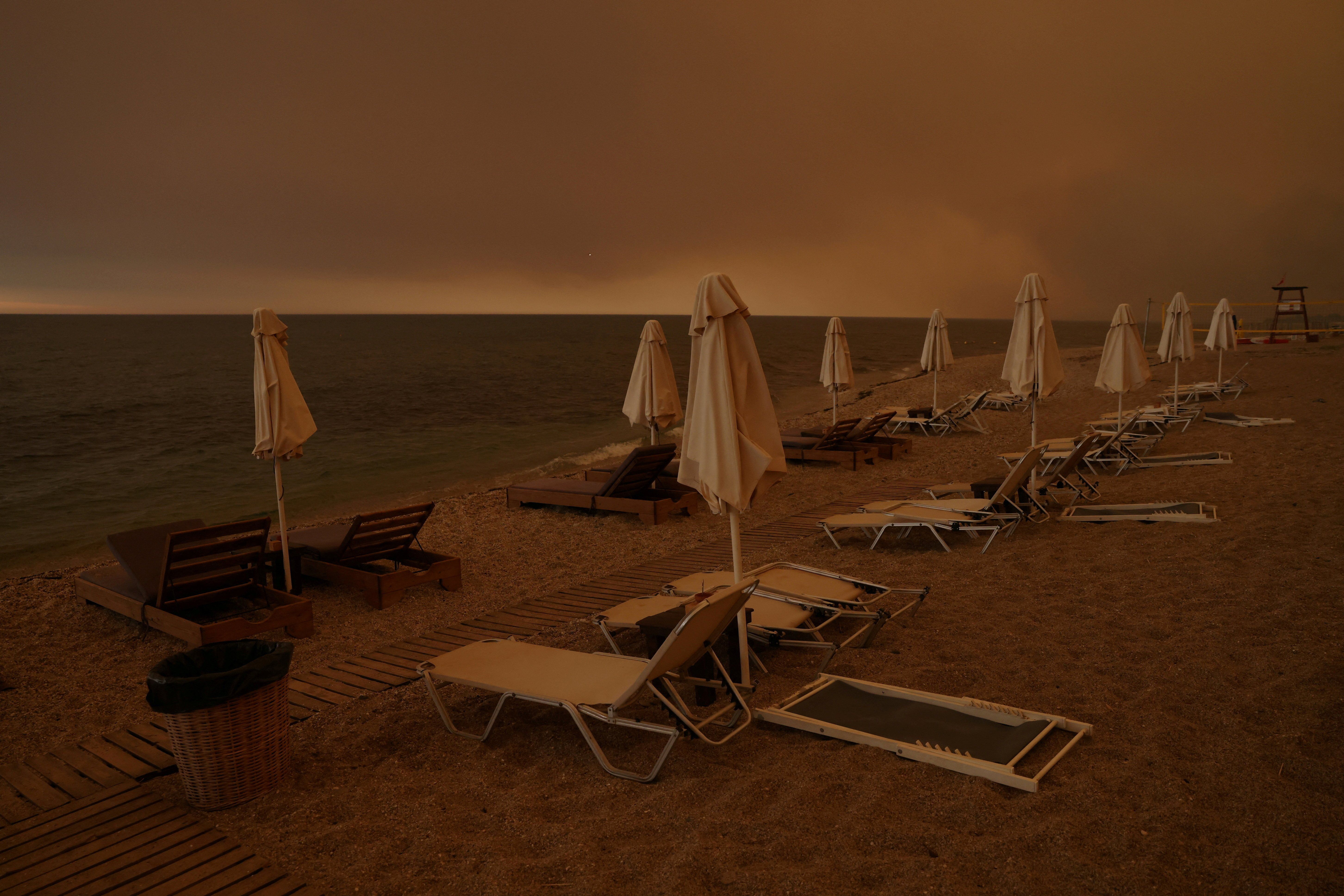18: The Greek fire service said Tuesday that 18 bodies, possibly of migrants, were found in an area of the Dadia forest along the Turkish border that’s been hit by wildfires. Local media have reported the findings of eight additional bodies – if confirmed, this would bring the total to 26. Large swaths of southern Europe are fighting wildfires and on alert due to extreme heat and high winds.
900: Their nightmare has ended. Eight people – two teachers and six schoolchildren – have been saved after being trapped in a cable car stuck 900 feet in the air amid the mountains of Pakistan’s Battagram region. A military helicopter and zip line were used in the rescues after a cable snapped, leaving the car dangling over a ravine. Many Pakistani children living in remote areas rely on dilapidated cable cars to get to school.
1.34 million: Japan is set to unleash radioactive water from the Fukushima nuclear plant that has accumulated since the facility was hit by a tsunami in 2011, causing the worst nuclear disaster since Chernobyl. The move will see the 1.34 million tons of water filtered, diluted, and then released into the Pacific over 30 years. Tokyo insists this is important for decommissioning the plant, where the radioactive water has been stored in tanks for more than a decade, but the plan has caused uproar in neighboring countries worried about contamination.
500: Hunger has claimed the lives of 500 Sudanese children since fighting erupted in April, according to Save the Children. Clashes between warring military factions have forced the human rights group to shutter many of its nutrition centers in the country. While a million people have fled to neighboring countries, 31,000 children in Sudan are stuck without access to aid or medical care.
More For You
Think you know what's going on around the world? Here's your chance to prove it.
Most Popular
The US government will reportedly fund MAGA-aligned parties and think tanks in Europe. But with US President Donald Trump’s favorability in Europe so low, do they even want the money?
Zelensky agrees: elections matter #PUPPETREGIME
As more small businesses move sales, payments, and customer relationships online, they unlock new opportunities, but they also become easier targets for cyber-criminals and other threat actors.
